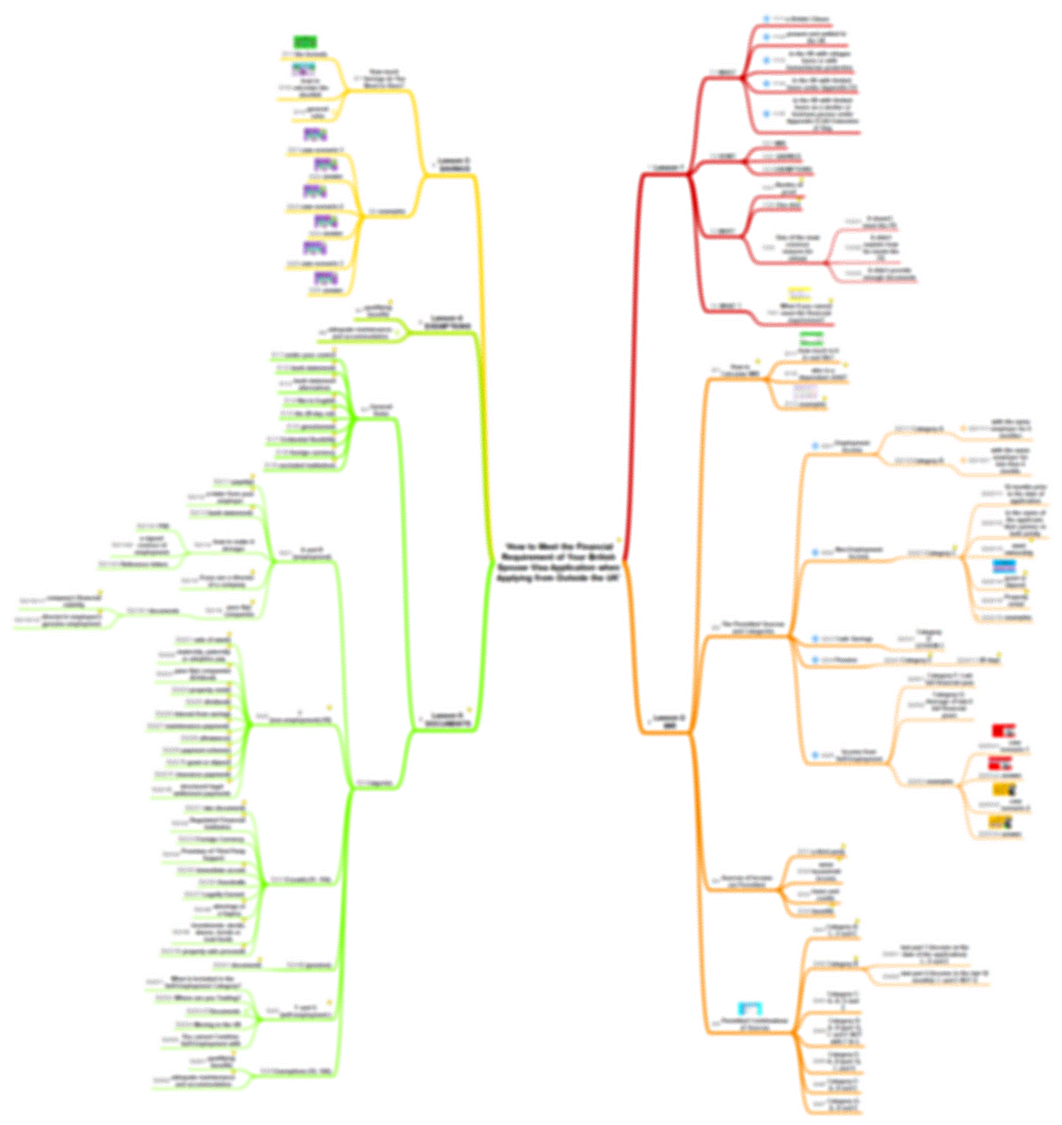Can Your Partner Change Jobs when Your UK Spouse Visa is Pending?
John’s and Gwen’s Story

John, a British Citizen, married Gwen in January. Gwen is a foreign national residing outside the UK. In February, Gwen applied for a UK Spouse Visa to enter the UK and live with John on a permanent basis here.
At the date of application, John was working at XYZ Architects Ltd for nearly 12 months. His gross annual salary was £30,000.00. However, in April, John decided to leave the company. He created his own business and registered with HMRC as self-employed.
The Home Office Refused the Application
In June, the decision-maker refused Gwen’s visa application. According to the refusal letter, it was because allegedly:
1. John did not provide a letter from his employer confirming his salary, length of employment period showing the level of salary paid or employment type; and
2. amounts shown on the payslips differed from those paid into the bank account from June onwards.
Can Your Partner Change Jobs when Your UK Spouse Visa is Pending?No Article 8 Grounds?
Also, in the refusal letter, the Secretary of State mentioned that she did not find any exceptional circumstances in John’s and Gwen’s case, which would render refusal a breach of Article 8 of the European Convention on Human Rights because it could result in unjustifiably harsh consequences for her or her family.
John and Gwen appealed against the refusal.
The First-tier Tribunal Refused the Application
The appeal took place a year later after the refusal of the application. The First-Tier Tribunal (FTT) judge dismissed the appeal. The judge confirmed that John met the financial requirements at the date of the application. However, in his opinion it was rather irrelevant. The judge dismissed the appeal because, in his opinion, the entire legal position changed when John had left his salaried employment to become self-employed.
Are They Doomed to Live Separately or Outside the UK?
If John and Gwen were to appeal against the FTT judge’s decision, what would happen next? Would they succeed? Are they doomed to live separately or together but outside the UK?
The most exciting part of this story is that we do know precisely what happened. It is because the Upper Tribunal just reached a decision on a very similar case.
After the refusal of the application (similar to Gwen’s case), Ms Begum (the appellant) applied for permission to appeal to the Upper Tribunal. The First-tier Tribunal refused such an application. Ms Begum then applied for the same permission to the Upper Tribunal. Again, the Upper Tribunal rejected this request.
However, the High Court granted Ms Begum permission to apply for judicial review. The High Court quashed the refusal of permission to appeal. The judge said that the Upper Tribunal should decide Ms Begum’s case afresh.
The Immigration Rules
Before analysing the case further, it is crucial to understand the rules governing the financial aspect of British Citizen partner entry clearance applications. Below is a summary of these rules.
However, if you would like to have a deeper understanding of these rules and how to avoid the refusal of the application because of its financial aspect, you are welcome to watch ‘How to Meet the Financial Requirement of Your British Spouse Visa Application when Applying from Outside the UK’ online course.
To summarise the rules, if the sponsor (a British citizen partner) is an employee at the date of the application, to meet the financial requirements, the couple will need to prove several points.
First of all, that the sponsor had been genuinely employed, and that s/he had been earning in excess of £18,600 gross a year. If the sponsor was with the same employer for over 6 months, then they will need to produce the documents covering the same period.
If the employment lasted for less than 6 months at the date of the application, the parties would need to provide evidence of financial credibility for the last 12 months.
Article 8
British citizen partner applications usually involve an Article 8 element.
Article 8 of the European Convention on Human Rights confirms the right to respect for a person’s private and family life.
When deciding appeals involving Article 8, judges need to follow the process of questions and answers set in the Razgar case.
The questions are:-
1. Will the proposed removal [or refusal to admit] be an interference by a public authority with the exercise of the … right to respect for his private or [as the case may be] family life?
2. If so, will such interference have consequences of such gravity as potentially to engage the operation of Article 8?
3. If so, is such interference in accordance with the law?
4. If so, is such interference necessary in a democratic society in the interests of national security, public safety or the economic well-being of the country, for the prevention of disorder or crime, for the protection of health or morals, or for the protection of the rights and freedoms of others?
5. If so, is such interference proportionate to the legitimate public end sought to be achieved?
The Key Questions
The Upper Tribunal judge answered two questions in this case:
1. Does the decision-maker need to asses the sponsor’s financial circumstances only at the date of application?
2. Did the refusal of the application breach Article 8?
Mr Justice Lane, who decided Ms Begum’s case, answered both questions affirmatively.
Financial Circumstances at the Date of the Application
Here is what judge Lane said:
‘It was well-established that the Rules were to be given their ordinary meaning. E-ECP.3.1 required the applicant to ‘provide specified evidence from the sources listed … of … a specified gross annual income of at least … £18,600’. E-ECP.3.2 provided that only certain specified sources of income would be taken into account ‘when determining whether the financial requirement in para E-ECP.3.1 was met’. None of those provisions could properly be construed as imposing any sort of ambulatory requirement to continue in the relevant employment, beyond the date of application. That conclusion was reinforced when one examined para 13 of Appendix FM-SE, which was firmly focussed on the past 6 months or, in some cases, 12 months, preceding the date of application.
Paragraph 27 of the Rules provided that an ‘application for entry clearance is to be decided in the light of the circumstances existing at the time of the decision ...’.
Since the Rules had been framed in such a way as to fix the relevant financial requirements at the date of application, it … did not enable the Secretary of State to refuse an application on the basis that the evidenced employment had ceased, after the date of application.’
What Does This Mean?
In other words, judge Lane confirmed that the decision-maker could only look at the parties’ financial circumstances at the date of the application. The Home Office can make specific enquiries to make sure that the employment is genuine. However, they cannot go beyond the date of the application.
Breach of Article 8
Judge Lane also said that the refusal of the application amounted to a breach of Article 8.
He said that the only real issue was whether the interference was proportionate to the legitimate public end sought to be achieved. It is the Razgar question No5.
He confirmed that the refusal was disproportionate.
It was a Very Expensive Victory
Ms Begum’s case provided some much-needed clarity. It confirmed that sponsors have the flexibility to change jobs whilst a spouse visa application is pending. The parties need to prove that they meet the financial requirement at the date of application.
The saddest thing here is that such a victory came at a huge expense – the parties’ valuable time together.
The parties got married in December 2016. Ms Begum applied to join her husband in the UK in February 2018. The Secretary of State refused her application on 7 June 2018. The First-Tier Tribunal dismissed the appeal on 24 June 2019.
The First-tier Tribunal refused permission to appeal to the Upper Tribunal on 13 September 2019. On 10 October 2019, the Upper Tribunal refused Ms Begum’s renewed application for permission.
On 10 December 2019, Mostyn J granted permission to bring a judicial review. The Upper Tribunal finally allowed this appeal only on 12 April 2021.
The parties did win the case. However, it took them 3 years to prove that they did meet the requirements when applying back in February 2018.
Further Help
When preparing to submit your entry clearance British partner visa application, you’ll need to meet 3 requirements:
1. The validity requirements (‘the procedure’)
2. The suitability requirements (‘good character’)
3. The eligibility requirements (‘key elements’):
i. The relationship requirements
ii. The financial requirements
iii. The accommodation requirements
iv. The English language requirements
Most refusals happen because the parties struggle to prove that they meet the financial requirement. ‘How to Meet the Financial Requirement of Your British Spouse Visa Application when Applying from Outside the UK’ online course provides a detailed analysis of this aspect. After watching this course, you’ll have a very clear understanding of how to avoid the refusal of your application on financial grounds.

